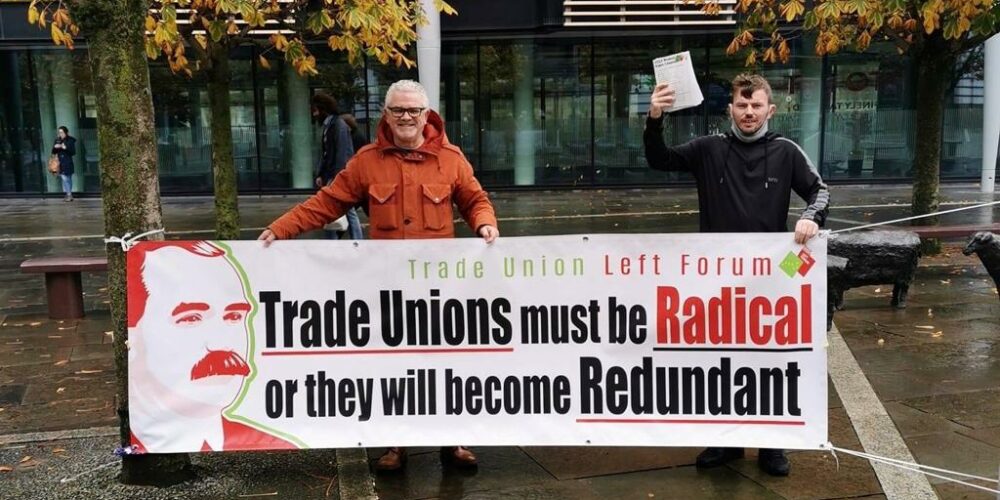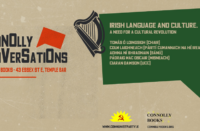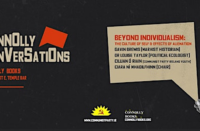After a seven-month wait for a Programme of (Mis)Government, the Executive produced vague promises on health and housing, with no specific targets. While easy to criticize the administrative class for incompetence, they are constrained by limited autonomy over fiscal matters, while facing challenges that demand significant investment. A key issue, for instance, is the lack of water/waste infrastructure blocking new housing developments in the region.
Since 2015, the Executive has power to set corporation tax, and discussions are emerging about “devolving” more powers, including income tax (which on current rates could raise an estimated £3 billion), fuel duty (£864 million), and alcohol and tobacco duties (£774 million). However, the British Treasury has a firm grip, requiring an immediate reduction in the block grant before revenues can benefit the North. Given that public services in the region are already underfunded in relation to local needs, risking further cuts in the hope of tax windfalls is highly risky. Even the DUP won’t support the economic shock therapy such a gamble entails. It confines the region’s public spending to the begging bowl in Westminster where the North has no clout.
Caught in this bind, Sinn Féin’s Finance Minister, Caoimhe Archibald, has called for austerity measures. Meanwhile, the Department for the Economy’s strategy to raise productivity in the private sector could be seen as an indirect attempt to boost wages, allowing workers to afford the increasingly commodified and means-tested public services of the not-too-distant future. With around a third or more of universal credit going to individuals already in work (thereby subsidising capitalists), reducing dependency on welfare is part of this agenda. Notably, accumulation within the capitalist sector has shown surprising signs of recovery, with wages (growing faster than the rest of the UK) showing an 11% increase in the past year.
Certain sectors remain vulnerable. Harland & Wolff may soon be sold to a Spanish state-owned shipbuilder, a deal facilitated by Rothschild Bank. Spirit AeroSystems, the region’s largest manufacturer, has been taken over by Airbus, a company heavily backed by German and French government investments. With Brazilian finance capital dominating the agri-food sector, Saudis making record-breaking deals on Belfast office blocks and a US firm mining for gold in the Sperrin Mountains, the region’s productive capacity is well and truly at the heel of global monopoly capitalism.
Public finances remain heavily reliant on external aid from the British Treasury, Peace Plus, and the Irish government. Peace Plus marks the last major EU financial contribution and is due to end shortly, leaving Dublin as the main ongoing donor. Dublin has recently contributed over €800 million, including €102 million for the Narrow Water Bridge, €50 million for the paused Casement Park project, €600 million for infrastructure, €45 million for Magee University, and €10 million for nursing programs. This financial support underlines the Irish government’s role as a “co-guarantor” of the region’s post-conflict settlement, and economically affirms its real influence in a way nominal constitutional claims failed to do. It should be the economic lever to prise open greater political input in shaping the North’s trajectory.
As Northern public services face austerity, even Sorcha Eastwood MP of Alliance has expressed frustration, asking, “Why is it always working people, not billionaires, tax dodgers, and mega-corporations, who suffer?”1. Sorcha’s question is valid, but it is the Communist Party, not Alliance, that offers the answers:
Working people suffer because the wider British economy is weak, which means the British government’s revenues are insufficient to support increased Keynesian-style investment, and capitalists’ investment record is poor in recent decades. To do Keynesianism, Labour Party would need to borrow more, but that would increase the deficit and the already high public debt. While proponents of Modern Monetary Theory argue this doesn’t matter, they overlook the constraints imposed by the value form and fetishise the money form.
Labour Party leadership, under the British Treasury influence, believe that additional borrowing would crowd out private investment and risk triggering a recession. As a result, they plan to borrow too little and continue cutting public spending in the October budget: a policy inevitably impacting Northern Ireland. What is needed instead is to put end to the privileges of the billionaires, tax dodgers and mega corporations and build an economy based on peoples’ needs, not private accumulation






